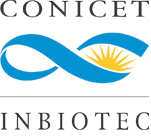Journal of Plant Growth Regulation, 20 January 2023, 2023
Abstract
Sugars are not only energy sources, but also central molecular signals that regulate growth, development, and response to environmental stresses. It is well recognized that sugars activate TOR kinase, the key integrator of energy availability that connects external and internal signals to regulate growth in eukaryotes. However, the specific effect of different types of sugars and their concentrations on TOR signaling has not been studied in detail. Thus, we studied the activation of the root apical meristem (RAM), which is a TOR-dependent process, and TOR activity in vivo in seedlings of Arabidopsis thaliana treated with different types and concentrations of sugars. The results show that exogenous sucrose (Suc), glucose (Glc), and fructose (in a minor extent), induced RAM reactivation and TOR activity; however, at high concentration, Glc did not induce the RAM nor the kinase activity. In contrast, trehalose was not able to affect RAM length or activate TOR. High concentration of sugars, which resemble some stress conditions, inhibited TOR activity. To better clarify this effect, we examined the potential link of sugars with oxidative stress and auxin signaling. The data indicate that only Suc-fed seedlings could override the negative effect of methyl viologen on root growth and that Suc-induced TOR activity required auxin signaling. Besides, the TOR activity impairment under high Glc may be due to a reduction on auxin gradient and not to an increase of ROS content. In summary, we propose that sugars regulate TOR activity differently, being their nature and concentration crucial for the effect.

